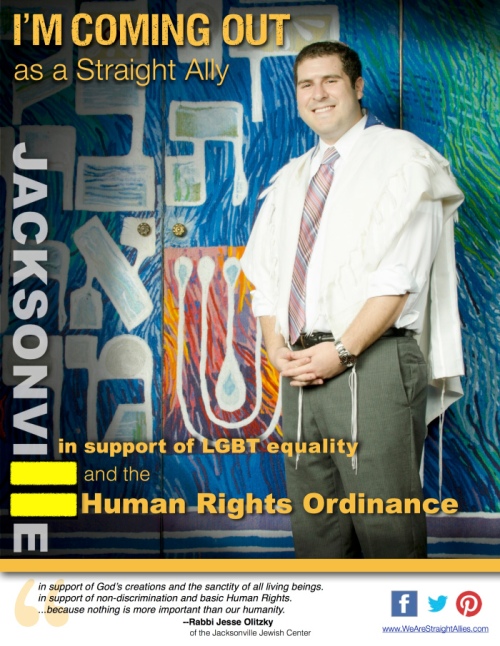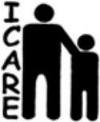This article was originally published by Haaretz. The full article can be found on their website here.

We – educators, clergy, parents and community members – are to blame, as bullying turns our sacred spaces into ground zero for exclusion and abuse.
On October 28, 2013, Jonathan Martin, offensive tackle for the Miami Dolphins of the National Football League, walked out of the team locker room and has yet to return.
Social media and mass media in the United States have been closely covering the story – not because Americans are football-obsessed fans, but because of the reason behind this athlete’s decision to leave the team, and possibly the game for good: bullying.
“Hey, wassup, you half n—– piece of s—. I saw you on Twitter, you been training 10 weeks. [I want to] s— in your f—ing mouth. [I’m going to] slap your f—ing mouth. [I’m going to] slap your real mother across the face [laughter]. F— you, you’re still a rookie. I’ll kill you.”
 That was one of the voicemails left on Martin’s phone a year after he was drafted, according to ESPN. Martin was so hurt by multiple incidences of bullying that he was even hospitalized for emotional distress.
That was one of the voicemails left on Martin’s phone a year after he was drafted, according to ESPN. Martin was so hurt by multiple incidences of bullying that he was even hospitalized for emotional distress.
While the owner of the team has said he was “appalled” by reports of these racial slurs, fellow athletes have barely lined up to support the victim. Instead, the response was merely, “That’s the locker-room culture.”
The “boys will be boys” explanation is all too often used to explain how boys, teenagers, and yes, even adult men, treat each other, while bullying among adolescent girls is often attributed to their age and desire to fit in. Neither explanation is correct, and neither explanation is an acceptable excuse for such harmful and hateful acts.
Here are the facts, according to a summary of studies by Business Insider: 160,000 children in the United States miss school every day due to fear of attack or intimidation; six in 10 teenagers serve as a bystander, witnessing bullying on a daily basis; 35 percent of children have been the victim to cyber bullying online; nine in 10 LGBT youth have reported being bullied because of their sexual orientation; and 64 percent of those who are bullied in America are too scared to report it.
Bullying – whether in the physical, verbal, emotional, or even cyber form – is a national epidemic in the United States and it is a global problem. Yet it took a 6’5’’, 315-pound famous athlete to be victimized before the United States was willing to wake up and realize the severity of this problem.
Bullying goes as far back as the Torah. While Jacob spoiled his beloved Joseph, Joseph’s brothers grew angry and jealous, planning everything from murder to throwing him in a pit, before eventually settling with selling him into a life of indentured servitude and telling everyone that he was killed by a wild beast. Joseph eventually achieved success, working under the Pharaoh of Egypt, and when his brothers approached the throne, groveling for food, he bullied them in return.
While we Jews are taught to model ourselves on the ethics and values of our biblical patriarchs and matriarchs, we must also learn from their mistakes. The Jewish community of today is not immune to the problem of bullying; it exists in our schools, camps, youth groups, and – more prominently and problematically – it exists among interpersonal adult relationships in our communities.
Our institutions, synagogues, and schools, like the National Football League, are reactive. We teach our children how to respond if they are being bullied or if they witness another being bullied. We instruct our children whom the adults are that they should seek out for help. Once someone or something crosses the subjective line, the issue is handled and dealt with, but if such institutions of learning and worship are truly sacred spaces, then they must be safe spaces from the outset. We – as educators, clergy, parents and community members – are to blame, as inhumane acts of bullying turn our sacred spaces into ground zero for exclusion, abuse and hate. Ending this national epidemic is not about being reactive. We must be proactive.
Last year, the community that I serve, the Jacksonville Jewish Center, and its affiliate educational arms, the Galinsky Academy, decided to take a proactive approach by launching our “Community of Kindness” initiative. The premise is simple: Let us preach kindness; let us teach love. If we teach our students (and their parents!) to be nice to each other, then eventually we will not need to respond to acts of hatred and bullying. Members of our institutions must move from tolerating each other to embracing each other.
In the famous Talmudic tale (Bab. Talmud Shabbat 31a), Rabbi Hillel declares, “That which is hateful to you, do not do to another. This is the whole Torah, the rest is just commentary!” Hillel declares that our divine scripture is rooted in kindness. The lessons learned from Torah teach us to do the simplest, and yet most difficult, of acts: be kind to each other. If we do so, we will no longer have to worry about being reactive, because bullying ends with us.
If we truly believe, as our tradition teaches, that every individual is created B’Tzelem Elohim, in God’s Image, then to allow bullying to continue in our institutions is a Hillul Hashem, a desecration of God’s name. To bully another is to bully God, for every life is sacred. Let us ensure that our communal institutions remain sacred, and safe too.
– Rabbi Jesse M. Olitzky








